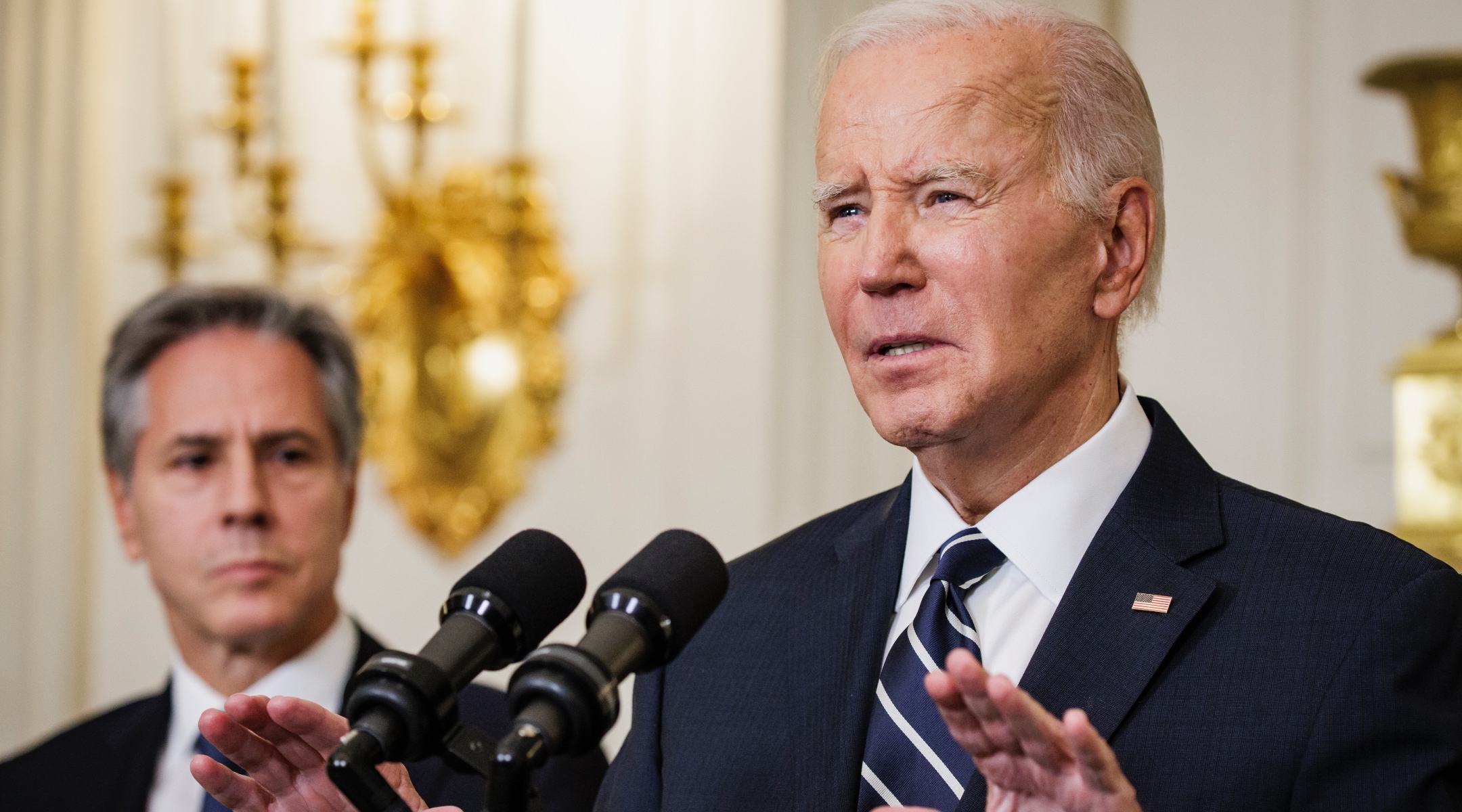Biden to Israel’s enemies: Don’t take advantage of Hamas attack to hit harder
Biden’s address followed official comments and was clearly meant to send Iran a warning

President Joe Biden speaks on the terrorist attacks in Israel alongside Secretary of State Antony Blinken from the State Dining Room at the White House, Oct. 7, 2023. (Samuel Corum/Getty Images)
WASHINGTON (JTA) — President Joe Biden said the United States was closely consulting with Israel in the wake of a devastating massive attack by Hamas and warned its enemies not to exploit the country’s vulnerability.
“Let me say this as clearly as I can: This is not a moment for any party hostile to Israel to exploit these attacks to seek advantage,” Biden in what appeared to be a message to Iran, Israel’s deadliest enemy and an ally of Hamas, which on Saturday launched a massive air, sea and ground attack from the Gaza Strip. “The world is watching.”
Biden had already delivered messages of support to Israel after the attack, which has killed and injured hundreds of people and seen scores kidnapped or taken hostage. Following the messages up with a televised appearance was an apparent bid to warn Iran not to escalate the conflict.
Hezbollah, Iran’s proxy in Lebanon, which has thousands of missiles prepared for a possible conflict, has already expressed its support for the attack; the last time Hezbollah attacked Israel, in 2006, Hamas had just conducted a raid on Israel and captured a soldier.
“I want to say to [Hamas] and to the world and to terrorists everywhere that the United States stands with Israel,” he said. “We will not ever fail to have their back. We’ll make sure that they have the help their citizens need to continue to defend themselves.”
Biden, speaking at the White House and standing next to his secretary of state, Antony Blinken, said he had directed his top officials to work closely with their Israeli counterparts.
“I spoke with members of Congress, directed my national security team to engage with their Israeli counterparts, military to military, intelligence to intelligence, diplomat to diplomat, to make sure Israel has what it needs. I’ve also directed my team to remain in constant contact with throughout the region,” he said, listing the United States’ Arab allies.
This article originally appeared on JTA.org.













